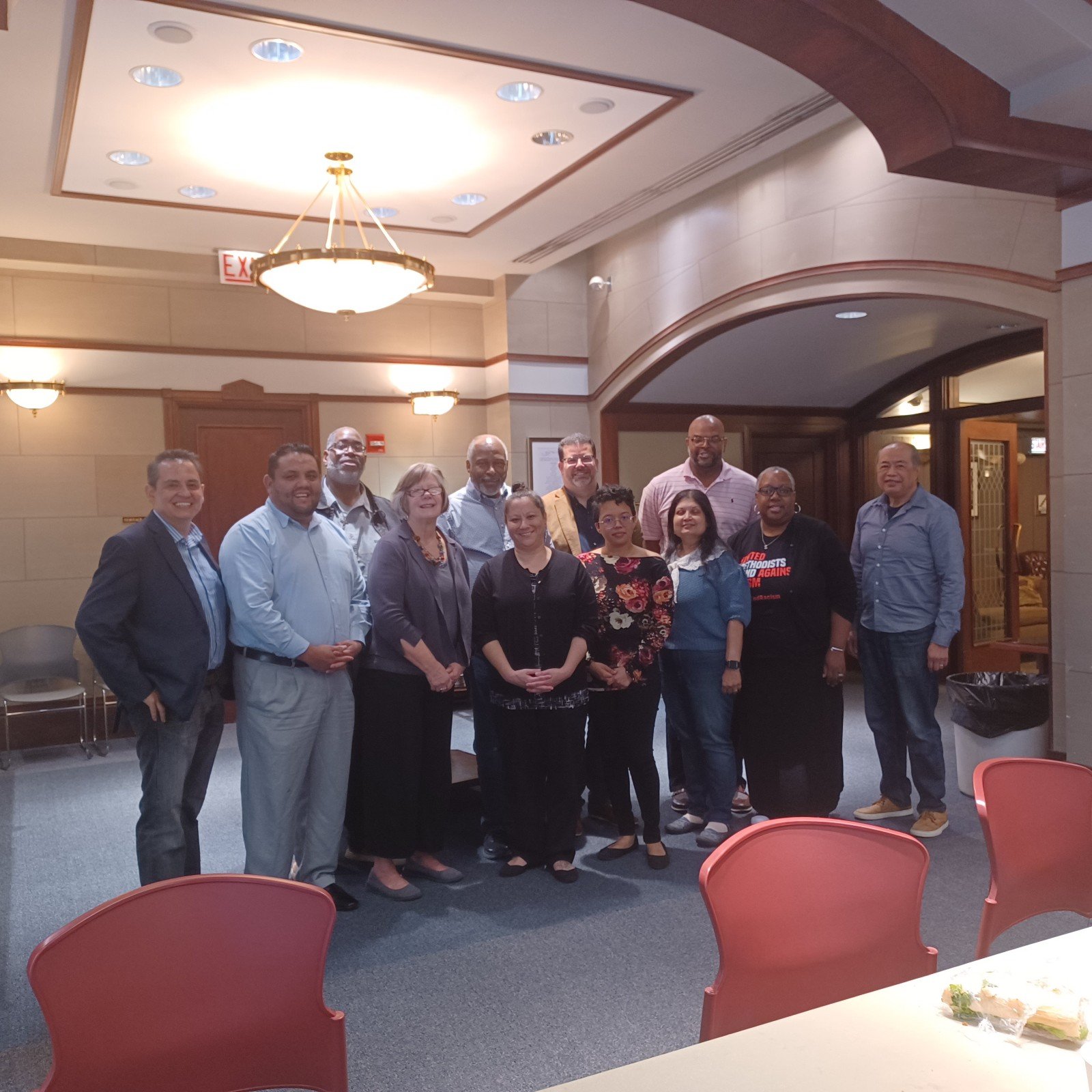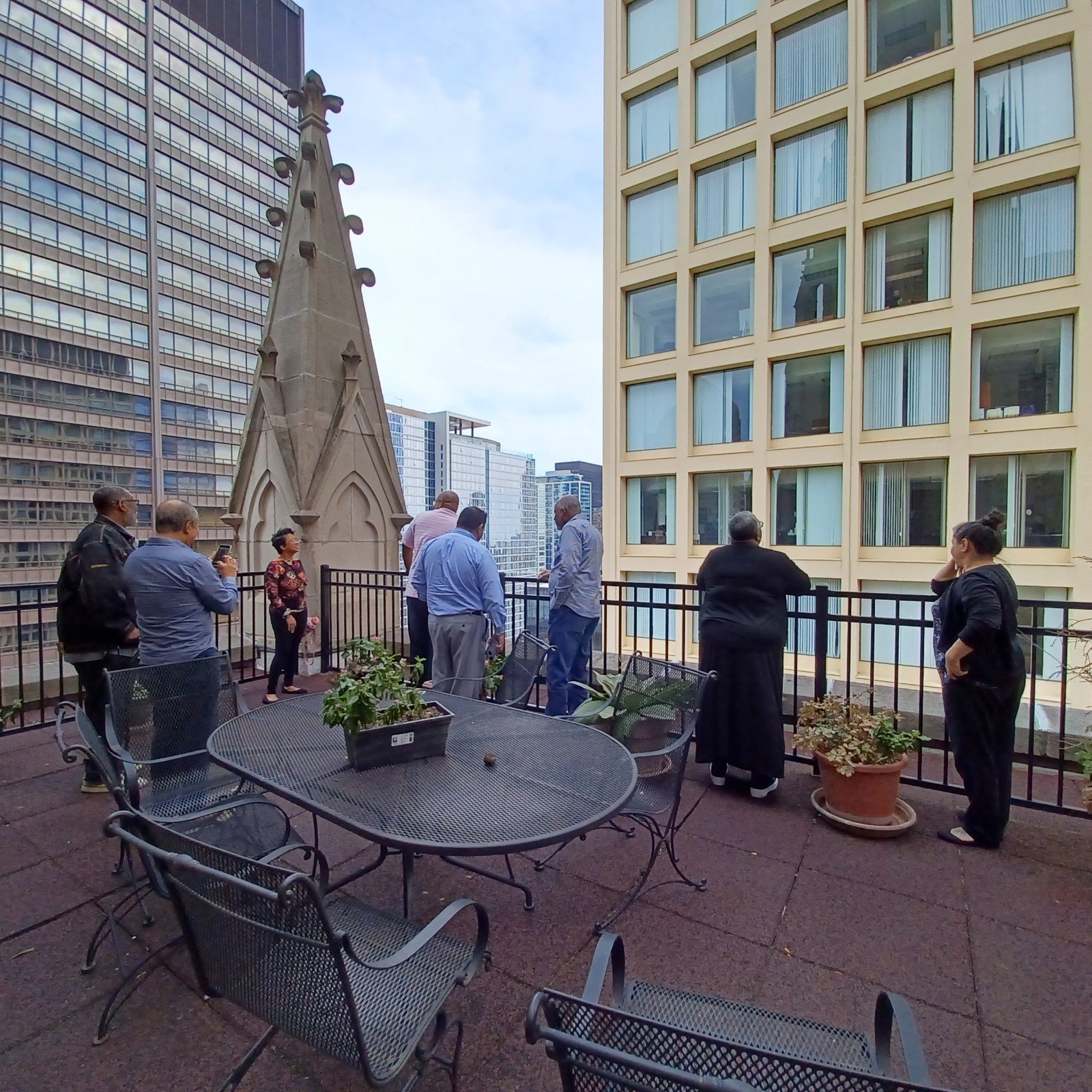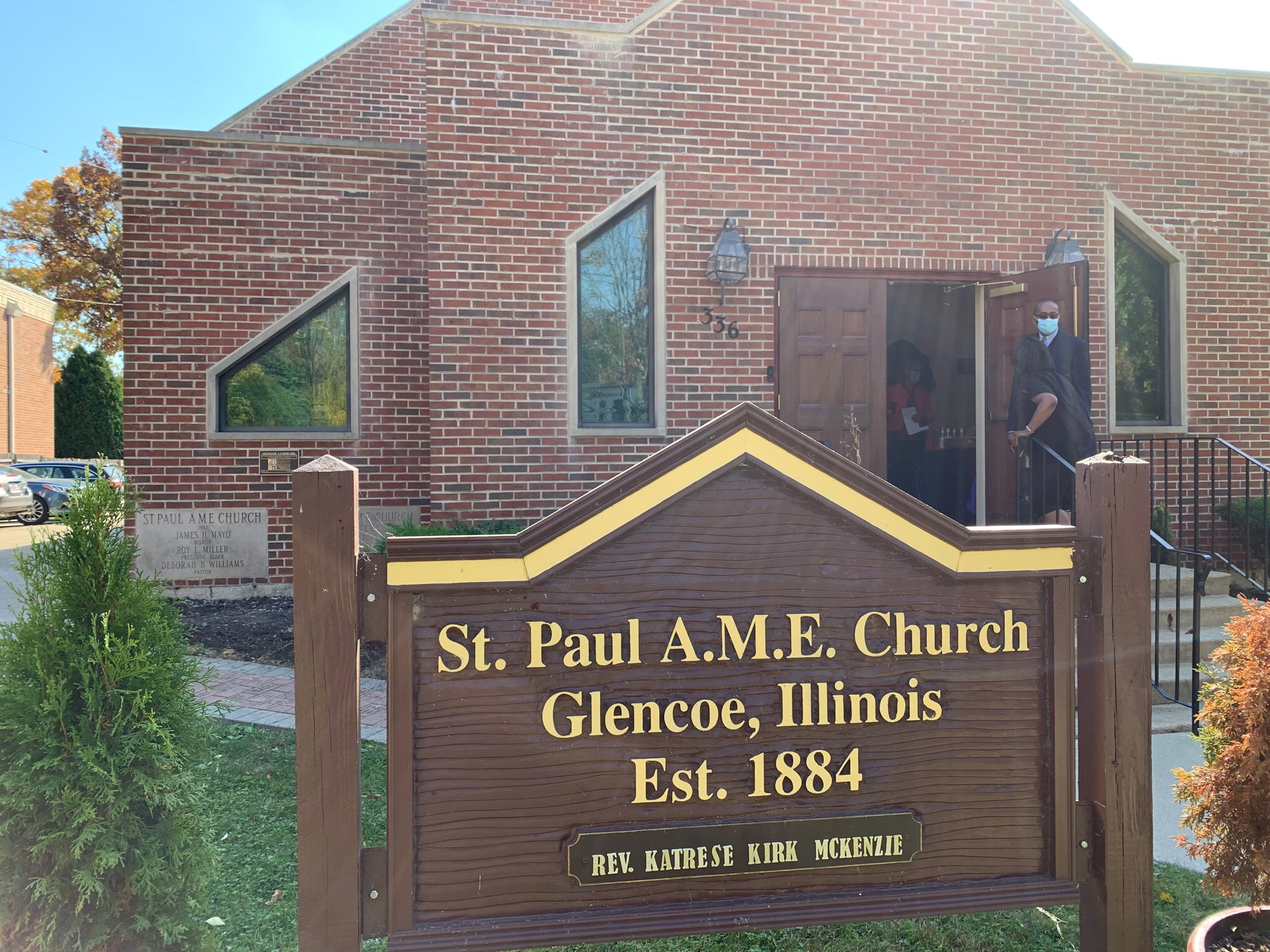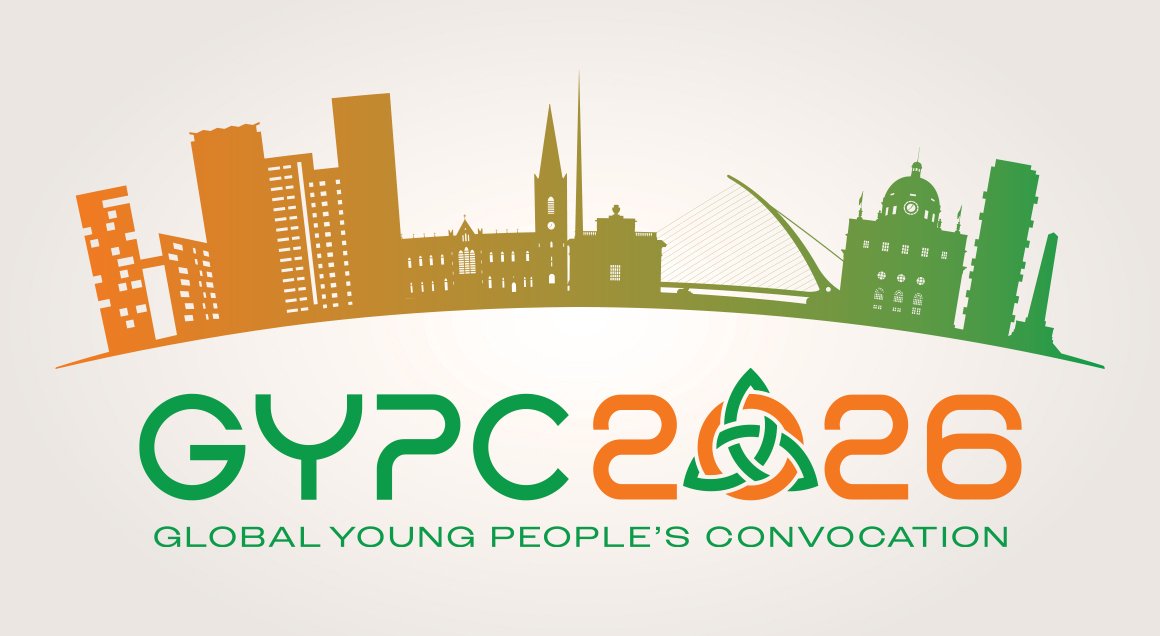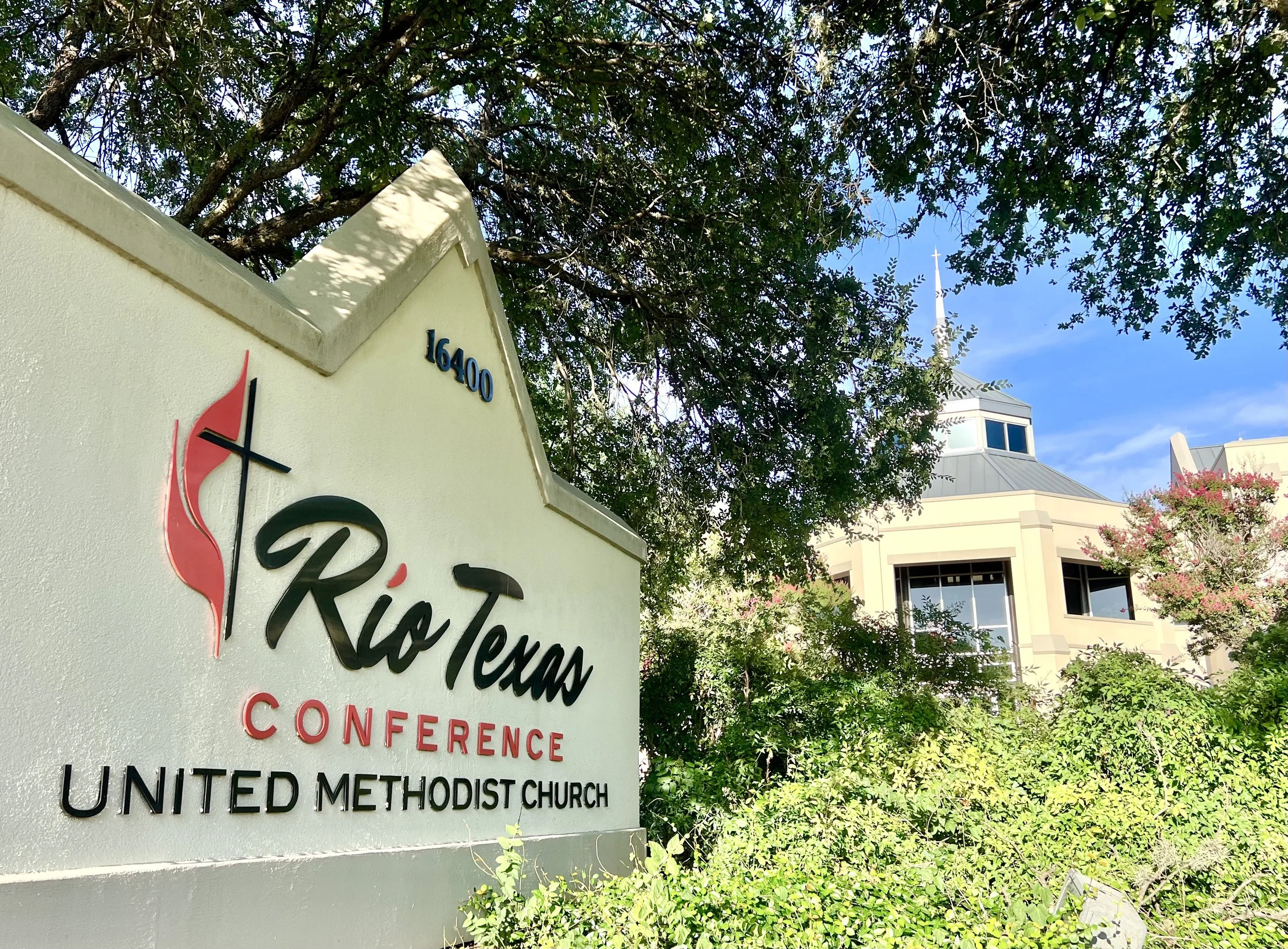EDI Conference in Chicago
/Written by Miguel Padilla
CHICAGO — One of my frequent Bible verses I use to open Sunday worship, or a church gathering, is Matthew 18:20. For me it is a reminder that it is a holy time when two or three gather to pray, to holy conference, or worship. However, I think it is an appropriate verse for the time I spent in Chicago October 23-26.
I was appointed this past July to be the EDI Conference Staff of the Rio Texas Conference. Soon after I was appointed, Bishop Laura Merrill and Rev. Ronald Henderson (from North Texas Conference) connected me to a monthly Zoom gathering with other conference coordinators. They were planning to meet in Chicago to share what they were doing and what roadblocks they had encountered. This group is made of recently appointed, like me, and few with more experience in their positions. I was invited to be part of a National gathering for Conference coordinators who deal with Equity, Diversity, and Inclusion (EDI) in their respective Conferences. It was the first time for me, first time for the group, and the first time of a meeting of this type.
One day before my flight to Chicago I received an email from the organizer Amania Drane, a lay person from Northern Illinois Conference, asking that if we arrive early in the morning to participate in an event happening in the historic St. Paul AME Church at Glencoe, Ill. The North Illinois Conference anti-racism team had a series of training sessions with North Shore UMC (NSUMC), a predominant Anglo congregation, early in the year.
The closing remark of Dr. Richard Guzman, leader and facilitator from the Anti-racism team, at the last session was “Now that you have done some work, please do not do anything. Please reflect, listen, seek relationships with minority groups, support and advocate.”
As a result of this training and following Dr. Richard’s advice, the members from NSUMC started conversations and fellowship with St. Paul AME. After both congregations worshiped, ate, and got to know each other, both churches led a local campaign to include the history of the church and the African American community’s presence and contribution to Glencoe community in the local museum.
The day I arrived at Chicago, they gathered at St. Paul. The leaders from both congregations and city authorities participated. St. Paul’s members shared personal stories about their experience growing up in the church and in the community. They expressed how the St. Paul community helped them find their identity and equipped them to thrive because St. Paul leaders exposed community members to faith, arts, education and mentors.
They also raised the question about the reduction of people of color in the neighborhood. They challenged the church and government to find a way to make Glencoe more welcoming for people of color, to create a support system for small business owners who are people of color, and recruit and offer good salaries to people of color in education and public service.
The mayor’s secretary and a few council members present at the event set dates to come up with an action plan on the demands from the members of these two churches and invited them to be part of those conversations.
For me personally, it was a holy moment to witness how people of faith working together can bring new possibilities and create access to those who otherwise are put aside or ignored. I am pretty sure the journey that led to this point wasn’t easy or pleasant. They probably had to confront their prejudices and misconceptions. There were probably some uncomfortable stories. But because they gathered and allowed their faith become their common ground, we were—at this moment at St. Paul church—witnessing the work of God and his disciples in action.
The next two days, the conference coordinators spent time visiting FUMC in Chicago, where we had conversations with some members of the Anti-Racism Task force of the conference. They shared their work and experiences. We visited Garret Evangelical Seminary and learned about the University as well as the efforts they were making to offer more flexible and inclusive classes. The Dean and staff shared their desire to close the gap between Academy and local church. They were planning record videos that local leaders could easily access.
They were also contemplating the possibility of bringing voices from Central America, Africa, or other parts of the world to enrich the theological conversation. We gathered via Zoom with the leadership from GCORR and people doing EDI working around the country. We talked about Youth ministry and EDI. We learned from each other and shared experiences. It helps to know that there are others who are willing to cooperate in order to expand God’s kingdom.
That is why I said the verse from Matthew has more relevance for me. It reminds me that when two or three gather to pray, to have conversation, to work and cooperate in God’s presence, His Kingdom is proclaimed to everyone. While I enjoy having partners in ministry and a wealth of wisdom, the most impactful moment was when I witnessed in St. Paul AME Church the possibility of God’s disciples working on their faith while they impact the lives of many families. May we be willing to do the hard work—not because it is good or feels good but because it is our call. We welcome God’s presence in our communities.

